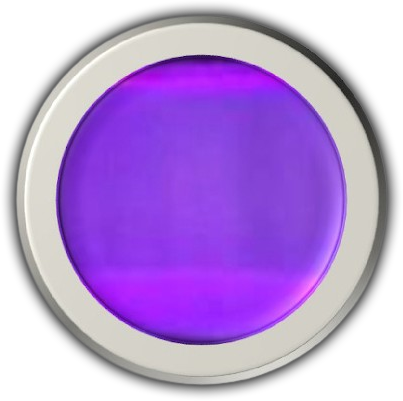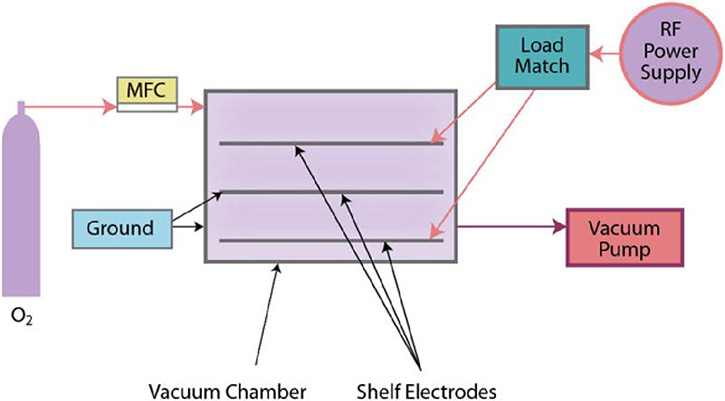
Low Pressure Cold Gas Plasma
Cold gas plasma, also termed “Low Pressure Cold Gas Plasma,” is conducted in an enclosed evacuated chamber, in comparison to atmospheric (air) surface pretreatment methods. Industrial-grade, 100 percent oxygen gas (O2) commonly is used, as well as other gases and combinations of gases. Gas is released into the chamber under a partial vacuum and subjected to an RF electrical field. It is the response of the highly reactive species generated with the polymers placed in the plasma field, on inner conductive electrode aluminum shelves or cage, breaking molecular bonds that results in cleaning and chemical/physical modifications (including an increase in surface roughness, which improves mechanical bonding). A significant benefit of cold gas plasma processes is the removal of hydrocarbons, thereby eliminating solvent cleaning. Atmospheric pretreatments do not remove/clean all poly-aromatic hydrocarbons, so solvent cleaning (prior to pretreatment) may be necessary.
Myth: Cold gas plasma batch processing is too slow compared to inline treatment methods.
Fact: Large volumes of parts often can be pretreated (batch) and fed into automated assembly operations, thereby no additional processing is needed. Cold gas plasma-treated parts tend to demonstrate the highest quality treatment and longest shelf life. Criticism arises from competitive equipment manufacturers.




